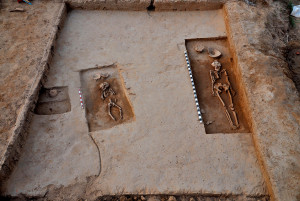 Harappan, or Indus civilization, arose in Pakistan and northwestern India around 2,500 B.C. This is a time when the great cities of Mohenjo-daro and Harrappa were urban centers. They were artists, builders, and writers. Archaeologists first discovered this civilization in the early 20th century when square stamp seals were found on the banks of the Ravi River in Pakistan. The writing on the seals was unknown at the time, so in 1920 Sir John Marshall and Rai Bahadur Daya Ram Sahni began excavations.
Harappan, or Indus civilization, arose in Pakistan and northwestern India around 2,500 B.C. This is a time when the great cities of Mohenjo-daro and Harrappa were urban centers. They were artists, builders, and writers. Archaeologists first discovered this civilization in the early 20th century when square stamp seals were found on the banks of the Ravi River in Pakistan. The writing on the seals was unknown at the time, so in 1920 Sir John Marshall and Rai Bahadur Daya Ram Sahni began excavations.
Tag Archives: prehistoric
5,000 year old burials found in India.
- Sunday, 19 April 2015 09:28
- 0 Comments
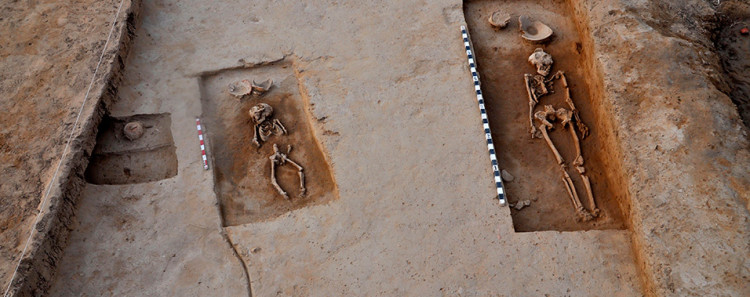
Ireland. 1,000 Year old passageway discovered in Caha Mountains
- Friday, 17 April 2015 07:30
- 0 Comments
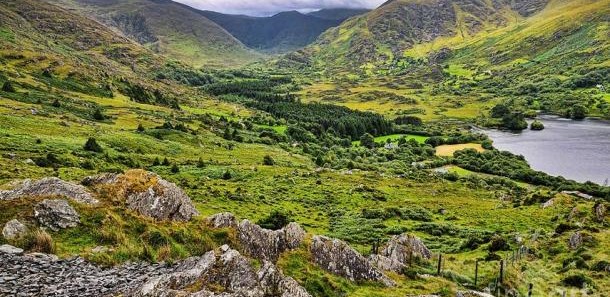
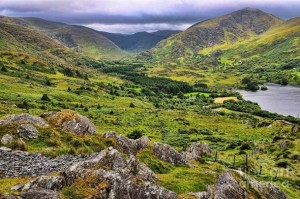
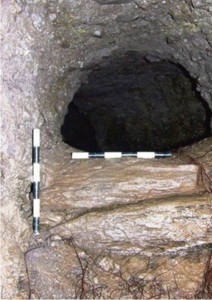 This Iron Age tunnel was dug through solid rock 1,000 years ago in Ireland. Called a souterrain, these kinds of structures were ordinarily associated with settlements and served as places of refuge during crises. http://www.ancient-origins.net/news-history-archaeology/1000-year-old-underground-passage-discovered-caha-mountains-ireland-002896
This Iron Age tunnel was dug through solid rock 1,000 years ago in Ireland. Called a souterrain, these kinds of structures were ordinarily associated with settlements and served as places of refuge during crises. http://www.ancient-origins.net/news-history-archaeology/1000-year-old-underground-passage-discovered-caha-mountains-ireland-002896
Who Owns America’s Archaeology? The American People? Or the highest bidders?
- Sunday, 12 April 2015 09:38
- 0 Comments
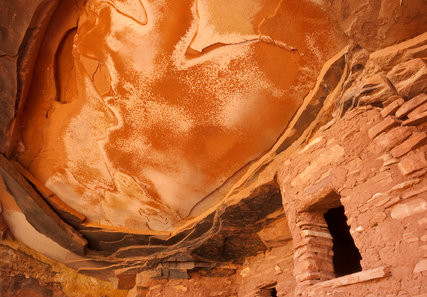
This is an interesting article for a lot of reasons. The most important part of the piece comes on page 3: “The United States Senate recently voted 51 to 49 on a nonbonding resolution to sell or give away nearly all federal lands…”
As a former BLM archaeologist, Kathleen can tell you that the federal government tried to sell public lands in 80s. It was called “Asset Management.” It was a money-making scheme then, and probably now. Every time the government needs money, they think about selling off America. Should the government be able to sell American cultural properties to the highest bidder? Do you want China and Saudi Arabia to own one-third of the western U.S.? Even if they outlaw foreign ownership, how about Monsanto or Exxon? Although, in our own home state of Wyoming, it would be more like 50%, since half of the state is public lands.
Want to know why Asset Management was abandoned in the 80s? After the BLM had spent months surveying and analyzing, trying to comply with all the laws mandated to protect cultural, paleontology, geological and other national resources, the government decided it would cost about three as much to sell the lands as it would get for the lands. So…unless the government is planning on ignoring its own laws to protect the public lands, this new scheme is going to fail, as well.
We certainly hope so. Most of the rare archaeological, historical, and paleontology sites in America–which currently belong to the American people–are not found in national parks or monuments, but outside them on other public lands administered by the BLM, Forest Service, Bureau of Reclamation, and other agencies.
http://www.nytimes.com/2015/04/12/opinion/sunday/saving-whats-left-of-utahs-lost-world.html?_r=0 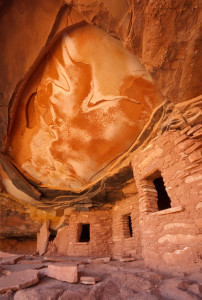
Pyrite mirrors found in Arizona reveal ties to ancient Mexico.
- Saturday, 11 April 2015 06:27
- 0 Comments
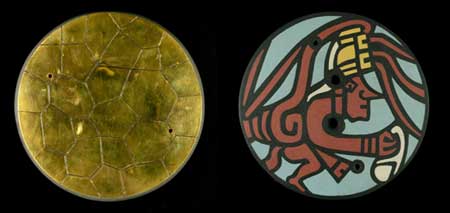
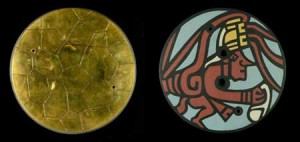 More than 50 polished pyrite mirrors were found in prehistoric graves at the Snaketown site, a Hohokam site, in Arizona. Most were found burned and buried with cremated remains. Pyrite mirrors like these were most likely made in Central Mexico and traded north to the U.S. between AD 650 and AD 950. Keep in mind that in many prehistoric cultures your reflection was your soul. So a mirror like this was magical and a high status object.
More than 50 polished pyrite mirrors were found in prehistoric graves at the Snaketown site, a Hohokam site, in Arizona. Most were found burned and buried with cremated remains. Pyrite mirrors like these were most likely made in Central Mexico and traded north to the U.S. between AD 650 and AD 950. Keep in mind that in many prehistoric cultures your reflection was your soul. So a mirror like this was magical and a high status object.
Rare petroglyphs revealed by monster surf in Hawaii: http://westerndigs.org/monster-surf-exposes-rare-petroglyphs-in-hawaii/
- Friday, 10 April 2015 06:24
- 0 Comments
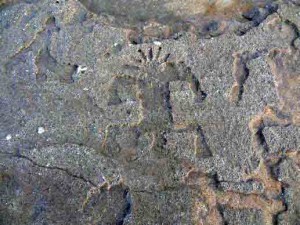 Last year monster waves, over 22 feet high, battered Hawaii and exposed rare petroglyphs… Very cool.
Last year monster waves, over 22 feet high, battered Hawaii and exposed rare petroglyphs… Very cool.
http://westerndigs.org/monster-surf-exposes-rare-petroglyphs-in-hawaii/